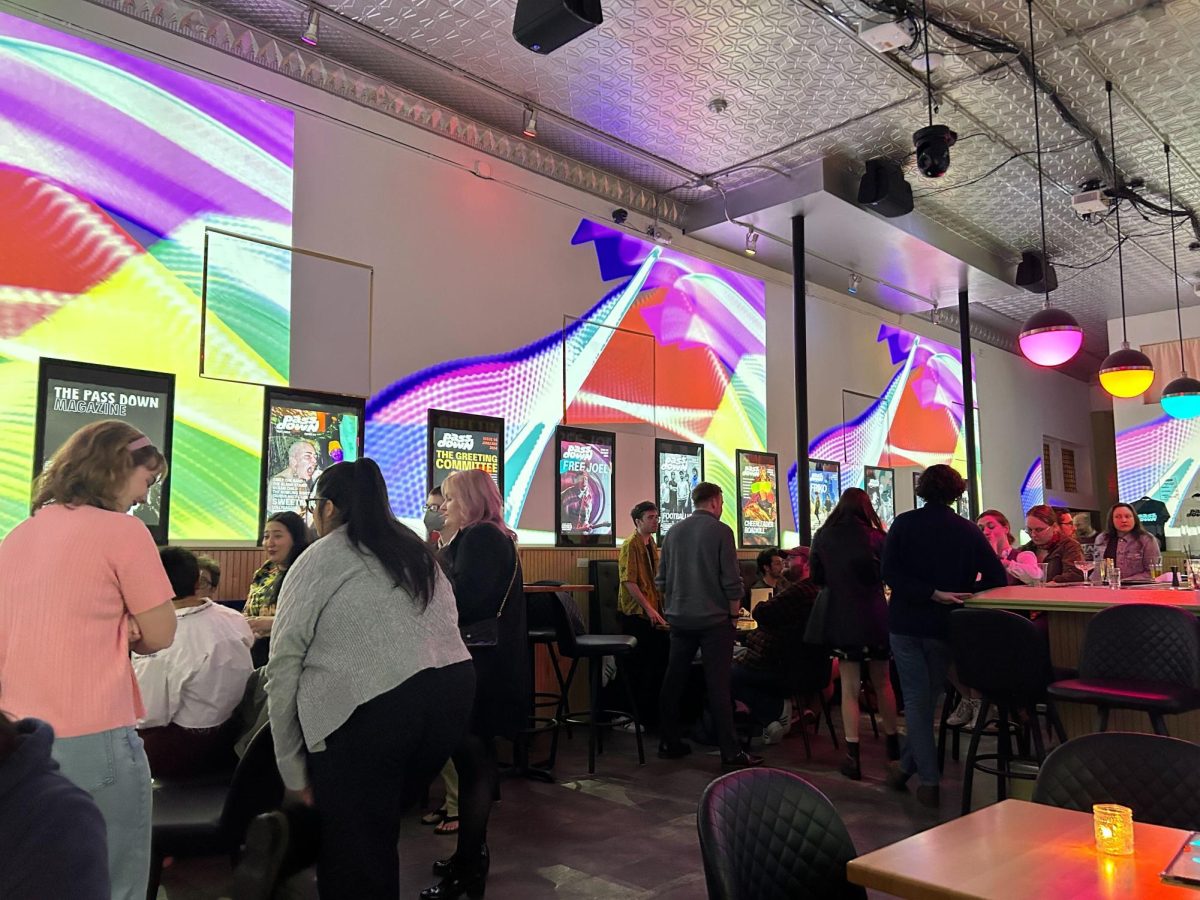Kola Foundation, a nonprofit organization started by University MBA students, distributed $80,000 worth of supplies that filled a 55-foot semi truck to Pine Ridge Indian Reservation last Friday.
Adam Ratner, CEO of Kola Foundation and MBA student, said about 450 people came out for the distribution of goods, yet half of the semi truck was still left with supplies because some people were not able to reach the event due to a lack of transportation.
He added that the rest of the supplies will be distributed by Re-member, another non-profit group on Pine Ridge, to nine community assistant offices across the reservation. Ratner said it “has the potential to touch probably about a thousand more people.”
Mariel Nardi, MBA student who went on the trip, said the Native American residents on the reservation were open to the presence of the group.
“I’d say we had a very positive reaction on the reservation. Those who attended the event seemed really pleased with all the goods that we brought,” Nardi said. “The Native Americans who helped us unload the goods from the truck and prepare for the event itself were really engaged and rather enthusiastic about the entire event — seemed very willing to help.”
Get The Daily Illini in your inbox!
Roger Fontana, Champaign resident with family ties on the reservation, said he has been going to Pine Ridge for the past 14 years and is planning on being adopted into the Lakota tribe.
“I really can’t explain it (the connection to Pine Ridge),” he said. “There’s a pull there. Through a spiritual void, I started seeking out my heritage and ended up out there.”
Fontana added that the Kola Foundation did a “smash-up” job on the reservation, and he hopes to get more involved with the organization.
Stig Lanesskog, associate dean for the MBA program, said he introduced students to Pine Ridge last summer.
“It’s been wonderful,” he said. “They’ve immediately made an impact on the reservation.”
Ratner, however, said Kola needs to keep the momentum going by focusing on more important sustainable projects.
“But the reservation itself, it’s a relatively small impact in the grand scheme of things,” Ratner said. “I think it’s a wonderful thing we did. We’re keeping a lot of people warm over the next few months.”
Lanesskog said he hopes the students continue to build relationships with people on the reservation to address the social and economic issues.
“It (the reservation) has the second lowest standard of living behind Haiti in the Western Hemisphere,” he said. “I hope that it allows our students to appreciate the roles that they can have in broader society. I hope it continues to provide visibility to the situation of the residents of Pine Ridge.”
Fontana said the conditions on the reservation are “primitive.”
“It’s third world. They’ve clawed their way to the third poorest county in the United States,” he said. “It’s a wasteland.”
The next step for Kola is to assist Lakota Funds, an organization aimed to promote socioeconomic sustainability on the reservation, to create the first credit union on Pine Ridge.
Ratner said the credit union would be a vehicle for saving money, which would create an option for the residents.
He added that people have to drive 100 miles for the nearest bank, but this fully functioning credit union would allow residents to become financially responsible.
“It’s not just the credit union itself, while it’s good for economic development, it’s what it represents on the reservation,” he said.
He added that creating sustainable initiatives will assist long-term development.
“It exceeded my expectations, but it also personally made me really hungry to do more,” Ratner said.




